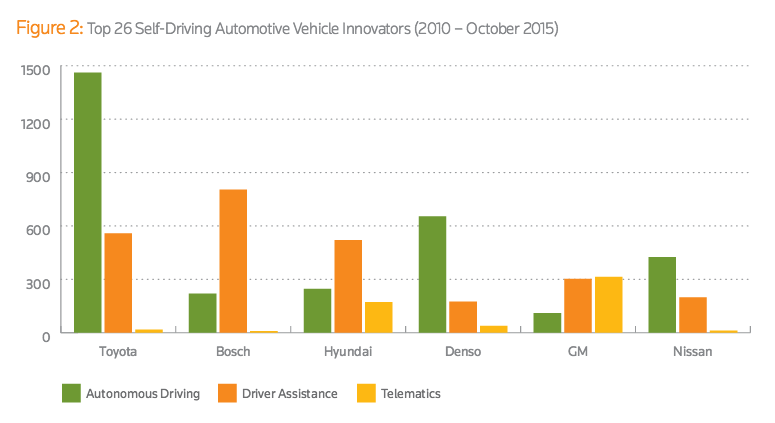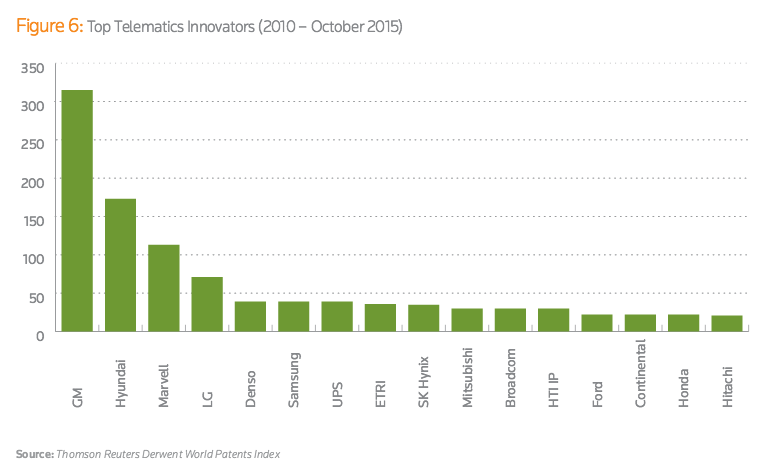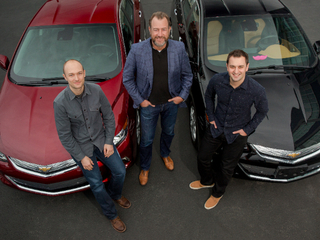When it comes to partners in auto innovation, Lyft chose wisely.
General Motors (GM), which this week announced an official partnership with the ridesharing company, is the fifth most innovative auto company in the world, according to a new study by Thomson Reuters.
The report, “The 2016 State of Self-Driving Automotive Innovation,” counted patents among companies as a barometer of innovation. In the past five years, over 22,000 new patents have been granted in areas of autonomous driving, driver assistance, and telematics, and the trend is still increasing.


Topping the list was Toyota (Japan), which in the past half decade has been granted nearly 1,500 autonomous driving patents, 600 driver assistance patents, and just a handful of patents for telematics. GM, rounding out the top five after Bosch (Germany), Hyundai (South Korea), and Denso (Japan), received over 600 total patents in the same period.
While the concepts behind autonomous driving and driver assistance are fairly straightforward, you may be less familiar with “telematics.” The study defined “telematics” as “an interdisciplinary field encompassing telecommunications, vehicular technologies, road transportation, road safety, electrical engineering and computer science, allowing cars to communicate with one another while on the road driving.”
And telematics is where GM dominated by taking the top spot with over 300 patents, almost double the number held by Hyundai in second place.


GM this week invested $500 million of a total $1 billion round in Lyft this week, bumping up the ridesharing company’s valuation to $5.5 billion. It’s clear through this major infusion of capital and the simultaneously-announced partnership that Lyft is showing no sign of slowing its fight against market leader Uber, which is today reportedly valued as high as $62.5 billion on the private markets.
What’s less clear is how effective the partnership with GM will help them in that fight.
Details on the partnership were sparse, but so far the joint announcement says GM and Lyft will work on developing an “Autonomous On-Demand Network,” will develop rental hubs for drivers to borrow cars while they drive for Lyft, and will integrate GM’s OnStar service more widely.
Lyft wouldn’t disclose any details, when I reached out to see if they have any timetable around autonomous driving.
Surprisingly or not (depending on your perspective), the Reuters study found that auto companies have been securing far more patents than tech companies. Google, which dominates headlines around driverless cars, somehow landed at the very bottom of the list of 26 companies with the most patents.
I expect we’ll be seeing more partnerships like Lyft-GM in the coming months and years, as Google, Tesla, and Uber strive to combine their tech leadership and engineering prowess with the big auto companies’ established market forces.
















